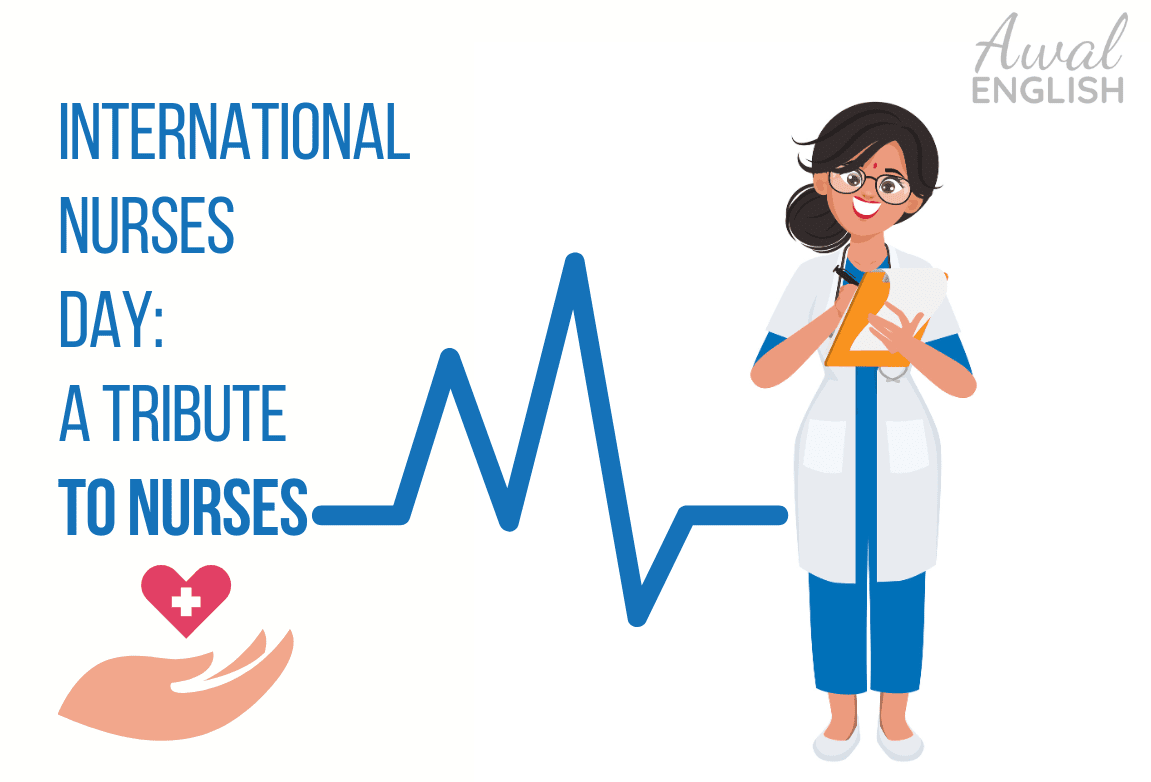
session with mentors
International Nurses Day is a special occasion celebrated around the world to show appreciation for the hard work and dedication of nurses. It happens every year on May 12th, which is Florence Nightingale’s birthday. She’s like the superhero of nursing because she helped make nursing what it is today.
History:
In 1953, a smart lady named Dorothy Sutherland thought it would be a great idea to have a day to celebrate nurses. Then, in 1965, the International Council of Nurses officially made it happen. Since then, people have been saying thank you to nurses every May 12th.
Florence Nightingale:
Florence Nightingale was born on May 12, 1820, and she’s a big deal in nursing. During the Crimean War, she worked really hard to take care of sick and injured soldiers. She believed in keeping hospitals clean and making sure patients got the best care possible. Her ideas changed nursing forever.
Importance of Nurses:
Nurses do so many important things to help people feel better and stay healthy. They give medicine, check on patients, and teach families how to stay safe and well. When you’re sick and go to the hospital or the doctor’s office, nurses are there to help you feel better and make sure you’re okay. They’re like the caring helpers who make everything better.
Theme of International Nurses Day:
Each year, International Nurses Day celebrates a special theme that shines. The themes can vary, covering a wide range of topics that a spotlight on different aspects of nursing are important to the nursing profession. Some examples of themes include nursing education, patient safety, mental health, and nurses’ role in addressing global health challenges. These themes help to highlight the diverse and essential roles that nurses play in healthcare. By focusing on specific topics each year, International Nurses Day aims to raise awareness and promote discussion about key issues facing the nursing community.
The themes also serve as a reminder of the ongoing commitment and contributions of nurses to healthcare worldwide.
Celebrations and Activities:
On International Nurses Day, people all over the world come together to celebrate and appreciate the hard work and dedication of nurses.
Healthcare facilities, organizations, and communities organize various events and activities to honour nurses. These activities may include award ceremonies, where outstanding nurses are recognized for their contributions. Seminars and workshops are often held to provide continuing education and training opportunities for nurses. Health camps may be set up to offer free health screenings and services to the community.
Social media campaigns are also popular, with people sharing stories and expressing gratitude for the work of nurses. These celebrations and activities help to highlight the importance of nurses and show appreciation for their dedication and compassion.
Education and Training:
Becoming a nurse is a big journey that involves a lot of learning and training. Nursing programs are like schools where people learn how to be nurses. In these programs, students learn about medicine, anatomy, patient care, and many other important things. They also learn how to use medical equipment and technology.
Nursing programs teach students how to take care of people in different healthcare settings, like hospitals, clinics, and homes. Continuous professional development means that even after becoming a nurse, they keep learning and growing. This helps them stay up-to-date with new advancements in healthcare and provide the best care possible.
Challenges Faced by Nurses:
Being a nurse can be challenging, and there are many things that nurses have to deal with. Long working hours mean that nurses sometimes have to work for a long time without breaks. Staffing shortages happen when there aren’t enough nurses to take care of all the patients. High levels of stress can come from having to deal with sick or injured people all the time.
Nurses also face the risk of getting sick themselves because they are often around infectious diseases. It’s really important to address these challenges so that nurses can stay healthy and provide the best care for their patients.
Nursing in Global Health:
Nurses are like superheroes when it comes to global health because they play a big role in helping people all around the world. They work hard to tackle big health issues like infectious diseases (like COVID-19), maternal and child health, and non-communicable diseases (like diabetes or heart disease). Nurses also help to bridge the gap in healthcare between different communities and countries. Their knowledge and dedication are crucial in making sure people everywhere have access to good healthcare. By working together, nurses make a big difference in improving health for everyone.
COVID-19 Pandemic and Nurses:
The COVID-19 pandemic was a really tough time for everyone, but nurses were like the superheroes fighting on the front lines. They worked long hours and risked their own health to take care of people who got sick with the virus. Nurses helped with everything from treating patients to giving vaccines and providing emotional support to families. Even though it was hard, nurses showed amazing dedication and courage throughout the pandemic. Their hard work and bravery helped to save many lives and make the world a safer place.
Recognition and Appreciation:
International Nurses Day is like a big thank you party for nurses all over the world. It’s a special day where we take the time to recognize and appreciate everything nurses do. We say thank you for their hard work, dedication, and all the sacrifices they make to help others.
Nurses are the heart of healthcare, and on this day, we make sure they know just how important they are. It’s a time to show our gratitude and give them the recognition they truly deserve.
10 Qualities of a nurse:
- Compassionate: Nurses possess a deep sense of empathy and compassion, allowing them to provide emotional support to patients and their families during challenging times.
- Patient: Nurses understand the importance of patience, especially when dealing with diverse patient needs and varying levels of understanding.
- Attentive: Nurses pay close attention to detail, ensuring they accurately monitor patients’ conditions and provide timely interventions when necessary.
- Communicative: Effective communication is essential for nurses to convey important information to patients, collaborate with healthcare teams, and advocate for patients’ needs.
- Knowledgeable: Nurses continuously update their knowledge and skills to provide evidence-based care and make informed decisions in various healthcare situations.
- Problem-solving: Nurses are adept at identifying problems and finding practical solutions to address patient concerns or unexpected challenges in healthcare settings.
- Flexible: Nurses must adapt to changing circumstances and priorities, often working in dynamic and fast-paced environments.
- Respectful: Nurses treat patients, colleagues, and other healthcare professionals with dignity and respect, regardless of cultural background or personal beliefs.
- Organized: Nurses manage multiple tasks efficiently, prioritizing patient care while coordinating with other healthcare team members and ensuring documentation accuracy.
- Reliable: Patients and colleagues rely on nurses for their expertise, reliability, and commitment to delivering high-quality care consistently.
Five points of nursing:
- Assessment: Nurses start by collecting information about a patient’s health. They do this by talking to the patient, checking their body, and looking at their medical history. This helps nurses understand what the patient needs.
- Diagnosis: After gathering information, nurses figure out what problems or risks the patient might have. They use their judgment to identify what’s causing the issues and what can be done to help.
- Planning: Nurses work with the patient and their family to make a plan. They set goals and decide what needs to be done to help the patient get better. The plan is personalized to fit the patient’s needs and wishes.
- Implementation: This is when nurses put the plan into action. They do things like giving medicine, helping with treatments, teaching the patient and their family about their health, and making sure the patient gets the care they need.
- Evaluation: After giving care, nurses check to see if it worked. They compare what they expected to happen with what actually happened. If the plan helped, they keep doing it. If not, they change the plan to better help the patient.
Four principles of nursing:
- Autonomy: Autonomy means respecting the patient’s right to make their own decisions about their health. Nurses support patients in making choices that are best for them, considering their values, beliefs, and preferences. For example, nurses inform patients about their treatment options and involve them in decision-making processes.
- Beneficence: Beneficence is about doing good and promoting the well-being of patients. Nurses aim to provide care that benefits the patient, such as administering medications, offering comfort, and advocating for their needs. They strive to improve the patient’s health and quality of life through their actions.
- Justice: Justice in nursing means being fair and treating all patients equally, regardless of their background, beliefs, or circumstances. Nurses ensure that resources and care are distributed fairly among patients, based on their needs and urgency. They advocate for equitable access to healthcare services and support patients in overcoming barriers to care.
- Non-maleficence: Non-maleficence means avoiding harm and preventing any actions that could cause harm to patients. Nurses prioritize patient safety and take measures to minimize risks during care delivery. They adhere to ethical standards and professional guidelines to ensure that their actions do not cause harm to patients, both physically and emotionally.
The 6 Cs of nursing:
- Care: Nursing is all about providing care to patients. Nurses offer physical, emotional, and psychological support to ensure the well-being of those under their care.
- Compassion: Compassion is the ability to empathize with patients, understanding their feelings, and providing comfort during difficult times. It involves showing kindness, understanding, and sensitivity towards patients’ needs and concerns.
- Competence: Competence refers to the knowledge, skills, and abilities that nurses possess to deliver high-quality care. Nurses undergo extensive education and training to ensure they are proficient in their roles and can provide safe and effective care to patients.
- Communication: Effective communication is essential in nursing to convey information, build rapport with patients, and collaborate with healthcare teams. Nurses communicate with patients, families, and colleagues to ensure clear understanding and promote positive outcomes.
- Courage: Courage is a vital trait in nursing, as nurses often face challenging situations that require bravery and determination. Nurses advocate for patients’ rights, speak up for their needs, and take action to ensure patient safety and well-being, even in difficult circumstances.
- Commitment: Commitment refers to the dedication and loyalty that nurses demonstrate towards their profession and patients. Nurses are committed to providing the best possible care, advocating for patients’ interests, and continuously improving their skills and knowledge to enhance patient outcomes.
Ethics in nursing
Ethics in nursing involves considering individual rights, promoting healthcare progress, and upholding social fairness. Being ethically aware ensures quality care delivery.
Sentences we can use to appreciate nurses for their efforts
- Nurses, your tireless dedication and compassionate care touch lives in ways words cannot express.
Nurses, आपका भाव और दयालु देखभाल शब्दों में बताई नहीं जा सकती है, जो लोगों के जीवनों को स्पर्श करती है।
- Your unwavering commitment to healing and comforting others is truly inspiring.
आपका दूसरों को ठीक करने का commitment वास्तव में प्रेरणादायक है।
- Thank you for your selfless service, which brings hope and comfort during life’s most challenging moments.
आपकी निःस्वार्थ सेवा के लिए धन्यवाद, जो जीवन के सबसे कठिन पलों में आशा लाती है।
- Nurses, your presence during times of illness and vulnerability is a source of strength and reassurance for us all.
Nurses, बीमारी और असुरक्षा के समय आपकी उपस्थिति हम सभी के लिए शक्ति की वजह बनती है।
- We are deeply grateful for your caring hearts and healing hands, which make the world a better place.
हम आपके दयालु दिलों के लिए आभारी हैं, जो दुनिया को बेहतर बनाता हैं।
Conclusion:
International Nurses Day is a time to celebrate the remarkable contributions of nurses to healthcare and society as a whole. By honoring their past, acknowledging their present challenges, and supporting their future endeavors, we can ensure that nurses continue to thrive and make a positive impact on the lives of individuals and communities worldwide.





0 responses on "International Nurses Day: A Tribute to Nurses"